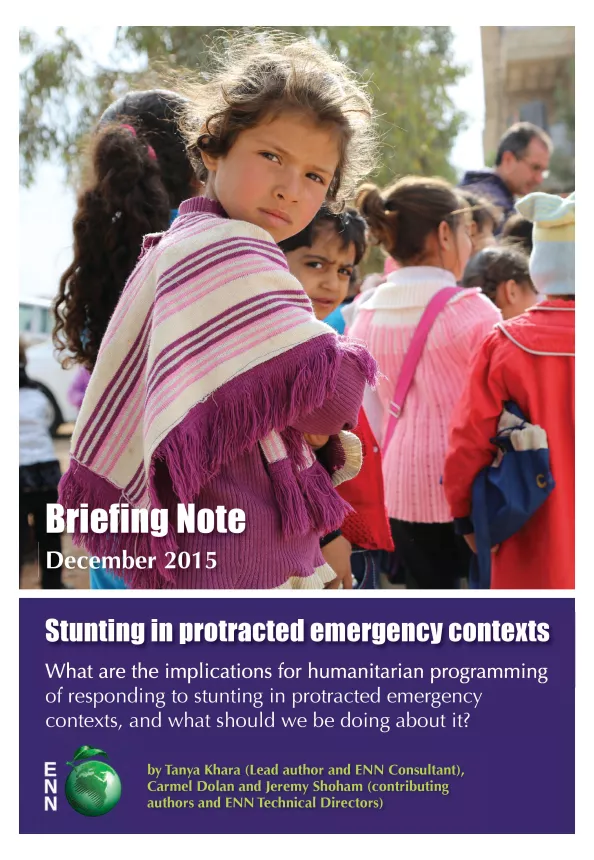Stunting in protracted emergency contexts: ENN briefing note
Publication details
What are the implications for humanitarian programming of responding to stunting in protracted emergency contexts, and what should we be doing about it?
A number of recent reviews of crises, including Syria (ENN 2014), Lebanon and the Ukraine (GNC-ENN 2015) have raised questions about the humanitarian nutrition response in contexts where levels of wasting are not elevated or high in terms of emergency thresholds, but where stunting is prevalent.
ENN decided to investigate the implications of operating in situations of protracted crisis where levels of stunting may be high and of concern. This brief investigation included a review of documents and informal discussions with a number of nutrition focal points in some of the donors and agencies. The purpose is to begin to explore the issues and pose questions and in so doing get the issue of stunting in protracted contexts higher up the nutrition agenda

